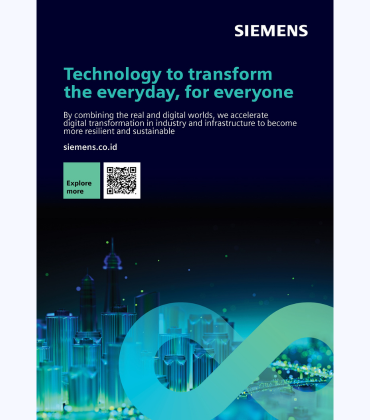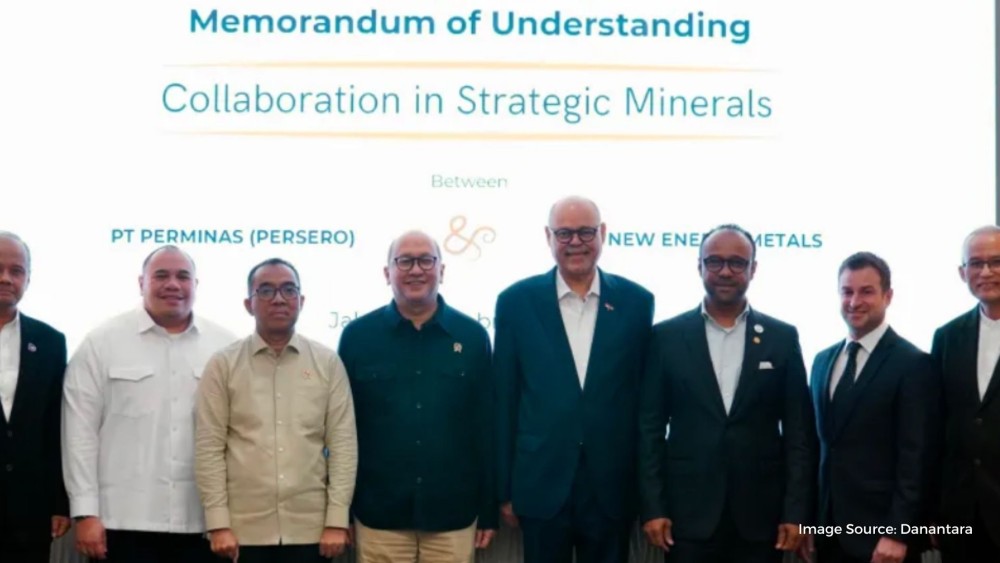This Week’s Headlines July 20- 26 (Issue #121)
26 Jul 2024

Indonesia pledges new tax exemptions, full foreign ownership among incentives to woo SEZ investments
The total investment into the country’s special economic zones was US12.9 billion by the first half of 2024, with plans to inaugurate four more SEZs worth an additional $9.9 billion.
Indonesia will provide longer tax exemptions and other fiscal and non-fiscal benefits to investors in its special economic zones (SEZs), a senior government official has confirmed.
Meanwhile, the government is planning to add four more SEZs to the existing 22 designated economic areas in the country, with a total investment value of 161 trillion rupiah ($9.9 billion).
On Monday (Jul 22), SEZ National Council secretary general Rizal Edwin said that a 20-year corporate income tax exemption will be given to investors with a minimum investment value of 1 trillion rupiah.
Those with a minimum investment of 500 billion rupiah will get a 15-year corporate income tax exemption, while those with a 100 billion investment will receive a 10-year corporate income tax exemption.
Other fiscal incentives for SEZs are tax holidays, tax allowances, value-added tax exemptions, tax exemptions on luxury goods sales and regional tax exemptions.
According to Mr Rizal, non-fiscal measures include the government’s assistance in providing facilities for investors in the SEZs, such as building use rights for up to 80 years, ease of access permits and 100 per cent foreign ownership.
"The provision of these facilities is to increase Indonesia's attractiveness and competitiveness to attract foreign investment in the SEZs through government regulations, which can help to boost the economy in the area and eliminate regional inequality," he said, as quoted by local media platform Tempo.
In Indonesia, not all businesses are allowed to be 100 per cent owned by foreign investors. Industries where businesses can be fully foreign-owned include those in the oil and gas construction services, oil and gas drilling at sea, geothermal drilling, the timber industry and internet service providers.
Indonesia first started developing SEZs in 2009, with the passing of the Law Regarding Special Economic Zones. According to this law, these designated areas which are subject to unique economic regulations, should aim to create more equal economic development among different regions which have traditionally been concentrated in Java and Sumatra.
The first SEZ in Indonesia was in Tanjung Lesung, in Java’s Banten province which opened in 2012. The current 22 SEZs spread throughout Indonesia mainly focus on the industrial, tourism and digital sectors.
Mr Rizal said that the existence of SEZs has also been useful in maximising industrial activities and in promoting exports and imports of goods and services which have high economic value.
By the first half of 2024, the total investments in the SEZs had reached 205.2 trillion rupiah, creating about 132,200 jobs.
According to Mr Rizal, in the first half of 2024, the investments received reached 31.4 trillion rupiah, or 40 per cent of this year's target of 78.1 trillion rupiah.
Four new SEZs set to open soon will have a total investment value of 161 trillion rupiah.
They consist of two in Batam which will focus on logistics, energy development and health tourism; one in South Tangerang, focusing on research, digital economy, educational, health, and creative industries and one in Morowali, Central Sulawesi, which will engage in logistics and energy production and processing.
The establishment of these four new SEZs is still waiting for approval from President Joko Widodo, Mr Rizal said.
He added that the government is also reviewing proposals to open seven new SEZs across Java, Sulawesi, and in East Kalimantan, close to the new capital, Nusantara (IKN).
The government is also reviewing proposals to open seven new SEZs spread across Java, Sulawesi, and in East Kalimantan, close to the archipelago's capital city. According to Mr Rizal, these new SEZs are requests from foreign and domestic investors.
The two SEZs near Nusantara will focus on addressing the energy needs of the new capital city and function as a centre for mining activities.
"Regarding the IKN, one of them is the presentation of energy, such as smelters and nickel, bauxite and coal mining products to provide energy for IKN," Mr Rizal said, as quoted by Kompas.
Source: CNA
Chinese firms seek to cut stakes in new Indonesian nickel smelters
Chinese companies are in talks with potential investors to reduce their stakes in Indonesian nickel smelters amid efforts to make their products eligible for U.S. electric vehicle tax credits, an Indonesian official said on Friday.
Under the U.S. Inflation Reduction Act, to be eligible for an electric vehicle (EV) tax cut, materials for an EV or batteries must be supplied by firms with not more than 25% ownership by a foreign entity of concern, which applies to companies from China, Russia, North Korea and Iran.
Indonesia, the world's biggest producer of nickel, has been negotiating a critical mineral deal with Washington so that its nickel can be included in the supply chain recognised by the IRA.
But the Southeast Asian nation's nickel industry is dominated by Chinese companies such as Tshingshan Holding Group, Zhejiang Huayou Cobalt and Lygend Resources and Technology.
Chinese companies are approaching Indonesian and South Korean firms for potential partnerships in high-pressure acid leaching (HPAL) plants under construction and those in the planning stage, Septian Hario Seto, a Deputy Coordinating Minister for Maritime and Investment Affairs told Reuters on Friday.
HPAL is a method for producing nickel material used in EV batteries from nickel ore.
The intention is to reduce the Chinese companies' stakes and be eligible for the tax credits in the U.S. market, said Seto, who oversees the mining sector at the coordinating ministry, adding Indonesian companies are also seeking majority shares in such projects.
"The Chinese company will act as the technology provider, the Indonesian investors as the ones to provide the nickel ore and the Korean investors would be the off-takers," he said.
The Financial Times reported on Thursday Indonesia's government and industry are structuring new investment deals with Chinese companies as minority shareholders.
Seto said the efforts are business-to-business, with no government intervention.
During a visit to Jakarta last week, U.S. official Jose Fernandez said both countries' negotiations on the critical mineral agreement were progressing positively but did not share details on timeline.
Source: Reuters
Bali to start LRT development in September
The groundbreaking is expected to take place in Central Parkir Kuta, which will also serve as the management office responsible for operating the system.
Bali is expected to begin construction of underground tunnels and tracks for its light rail transit (LRT) system this September, paving the way for the island’s first rail-based public transit system.
The project is part of the so-called Bali Urban Railway development plan, which will also include supporting infrastructure such as telecommunications, electricity, drinking water, waste and sewage management and the transportation-oriented developments.
The groundbreaking is expected to take place in Central Parkir Kuta, which will also serve as the management office responsible for operating the system.
“As planned, the groundbreaking will take place in September and it will include four development phases,” I Gusti Ngurah “Ari Askhara” Askhara Danadiputra said on Wednesday, as quoted from Antara.
Ari Askhara is the president director of PT Sarana Bali Dwipa Jaya (SBDJ), which was appointed by the Bali administration to manage the Bali Urban Railway development project.
SBDJ on Wednesday nominated PT Bumi Indah Prima (PT BIP) as the project's consortium leader to coordinate participating investors.
PT BIP was previously set to partner with a Chinese company, France’s RATP Group and Germany’s Siemens Group.
Residents and tourists have faced congested roads for years in the island province with the government blaming the narrow roads and motorists parking illegally on them, combined with the high volume of vehicles. Meanwhile, the island also lacks a comprehensive public transportation network, with services patchy in some areas and slow in others.
Building an underground public transit system will help to navigate several challenges, including the 15-meter height cap for buildings – as locals forbid anything that rises higher than temples – as well as costly land acquisition.
The construction of the underground tunnels is expected to be minimally disruptive to tourism activities on the island.
The project is set to cost US$20 billion, and the first phase around half of the total.
The first phase will connect Ngurah Rai international airport, Central Parkir, Seminyak and Canggu. The future phase, meanwhile, will extend the track from the airport to Nusa Dua, Sanur and Ubud.
National Development Planning Minister Suharso Monoarfa said on Wednesday that the project would not create debt for the central and local governments.
“I am sure investors already have their own calculations, which includes how they would seek returns for their investments. I hope more projects like this can be done in many other places in the archipelago,” Suharso said, as quoted from Antara.
Acting Bali governor Sang Made Mahendra Jaya said on Wednesday that he urged the company behind the projects to ensure that tickets remain affordable, especially for Bali’s local inhabitants.
“The tickets should not be too expensive. The company must subsidize the price so that Balinese people can also afford it,” he said, also quoted from Antara.
Source: The Jakarta Post

















